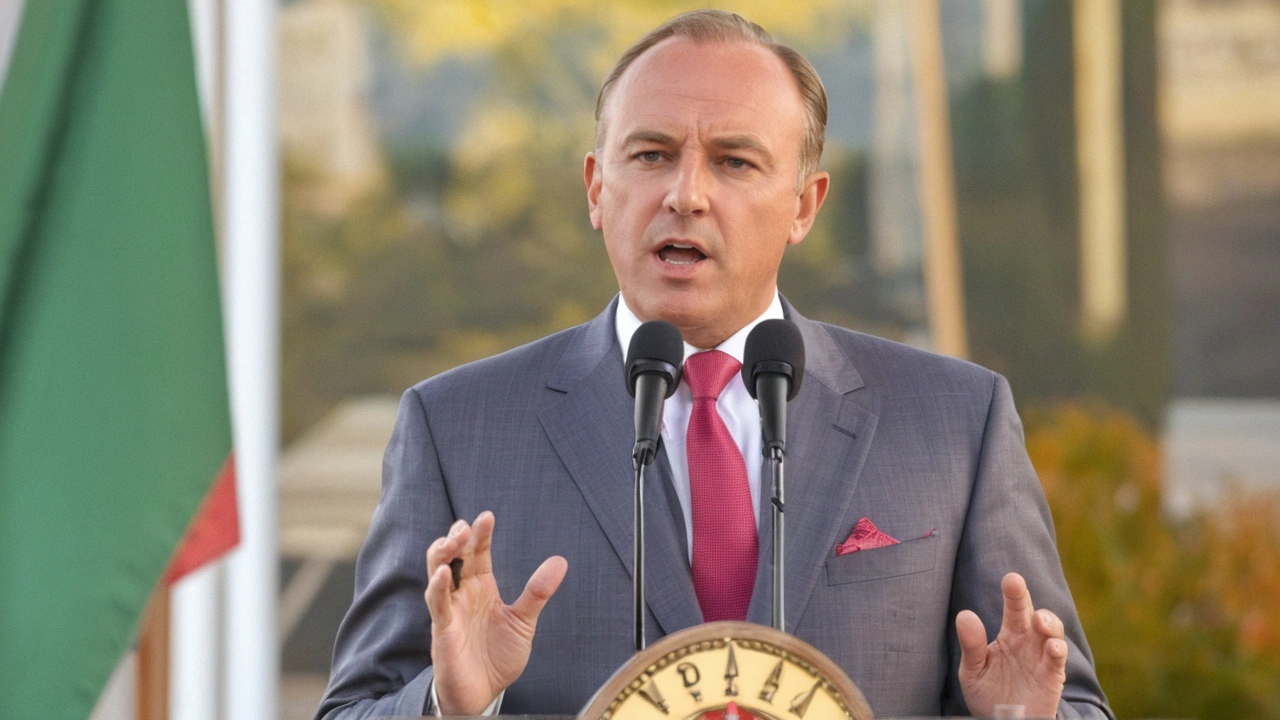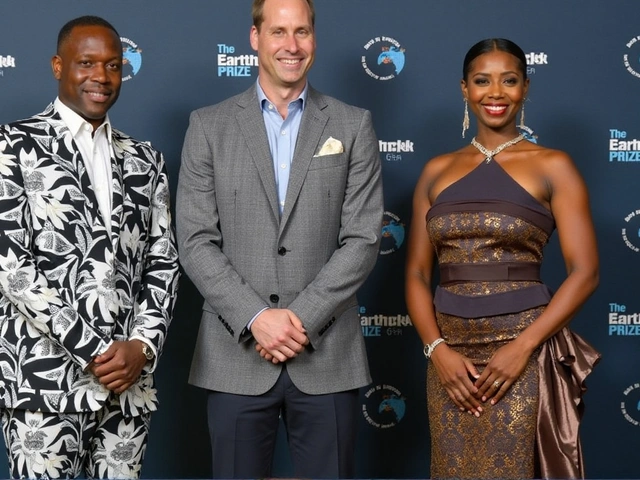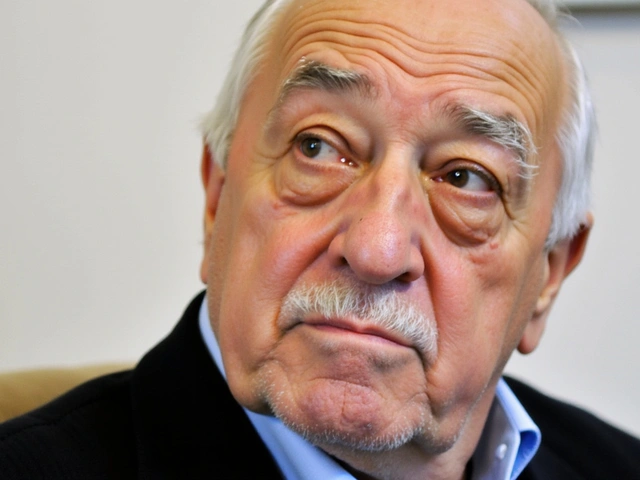Kithure Kindiki Defends Limited Public Engagement During His Tenure
In a recent session, Kithure Kindiki, the Interior Cabinet Secretary nominee, addressed his markedly limited public speaking during his tenure in the Interior Ministry. He clarified that his focus was primarily on the implementation of crucial policies and reforms, which he believed necessitated intensive on-the-ground actions rather than frequent public discourse.
Kindiki pointed out that his priority lay in enhancing the country's security framework and improving administrative efficiencies. This focus, he argued, was where the most significant impact could be made and was essential given the pressing needs of the Interior Ministry during his term.
Achievements and Improvements Under Kindiki
During his 21 months in office, Kindiki cited several accomplishments, including notable improvements in national security. Measures were put into place to combat rising crime rates and terrorism-related activities. These security enhancements came about through strategic deployment of resources, better training for security forces, and improved coordination among different arms of the security apparatus.
Additionally, Kindiki's tenure saw a streamlining of administrative processes within the ministry. He highlighted how these reforms reduced bureaucratic red tape, allowing for more efficient delivery of services to citizens. One key example was the digitalization of many processes, which not only curtailed the opportunities for corruption but also shortened wait times for individuals seeking various services from the ministry.
Tackling Criticism and Addressing Human Rights Concerns
Despite these achievements, Kindiki faced considerable criticism for what many perceived as a lack of adequate engagement with the public on issues of human rights violations. Human rights advocates argued that his silence on several high-profile cases pointed to an indifference or lack of commitment to addressing these critical issues.
In response, Kindiki defended his approach, stating that his administration's primary focus was to address the immediate and practical needs of the ministry. He acknowledged the importance of open communication and dialogue but stressed that actions yielding tangible results were equally, if not more, critical. According to Kindiki, his track record of improvements in security and administrative efficiencies underscored his commitment to addressing the fundamental problems facing the country.
The Role of Communication and Tangible Outcomes
Kindiki further elaborated that while he did recognize the value of robust public communication, he believed it should not come at the expense of achieving substantial outcomes. Public officials, he argued, are often required to strike a balance between engaging with the public and ensuring that their actions lead to measurable and positive changes.
He used several examples from his time in office to illustrate how his approach led to real-world improvements. For instance, the policies enacted under his watch saw a decrease in crime rates in several urban areas. These were not just statistics on a page but reflected real improvements in the lives of the residents of those areas. This, he argued, was a testament to his administration's commitment to making a difference where it matters most.
Kindiki's Strategic Decision-Making
Kindiki's explanation during the session aimed to shed light on his strategic decision-making framework. He contended that the pressing needs he faced upon assuming office required a more hands-on approach, one that emphasized action over rhetoric. This prioritization was particularly crucial, he said, in navigating the complex and often volatile landscape of interior ministry duties.
He also detailed how his leadership style evolved to meet the demanding circumstances of his role. Taking charge of a ministry often grappling with multiple challenges, from security threats to administrative bottlenecks, necessitated an approach that was both adaptive and focused on immediate results. His strategic decisions, he argued, were calibrated to address the most urgent issues effectively.
Looking Ahead: Embracing Balanced Public Engagement
Looking to the future, Kindiki expressed an understanding of the need to enhance public communication. He acknowledged that while his tenure focused on behind-the-scenes actions, moving forward, there would be a stronger emphasis on balancing these initiatives with more open and consistent dialogue with the public.
He concluded by underscoring his commitment to serving the public effectively, pledging that future efforts would incorporate a more communicative approach without sacrificing the focus on achieving tangible improvements in security and administrative functions. Kindiki's tenure, he hoped, would be judged not just by his words but by the clear and measurable impact of his actions on the nation's safety and well-being.
Kindiki's address thus provided a comprehensive overview of his perspective, elucidating the rationale behind his limited public engagement and reaffirming his focus on the concrete outcomes of his policy decisions. As he looks ahead to potentially continuing his work as Interior Cabinet Secretary, the balance between action and communication is likely to be a key area of focus.







Comments
Mark L
Honestly? I'd rather have a minister who gets stuff done than one who's always on TV. 🙌 The crime stats don't lie. We need more like him, not more press conferences.
Orlaith Ryan
YES! Action over noise!! 🌟 Finally someone who gets it-no fluff, just results. The people feel it in their neighborhoods. Thank you for doing the hard work!
Jacquelyn Barbero
I worked in public admin for 12 years. The red tape he cut? That’s a miracle. Digitalizing service requests saved hundreds of hours per office. People don’t see this, but it’s life-changing. 👏
toby tinsley
There’s a quiet dignity in leading without needing applause. The weight of responsibility often demands silence-not indifference. His focus on systems over spectacle feels… noble.
Chris Richardson
I get the criticism about human rights, but you can’t fix everything at once. He tackled crime and bureaucracy first-those are the foundations. Now he’s ready to talk more. Makes sense.
Arvind Pal
He didn't talk much but he did a lot 🤫🔥 The streets are safer now. That's all most people care about. Words don't stop bullets
Mark Archuleta
The operational tempo he established was a force multiplier. Resource allocation was optimized via real-time data pipelines and interagency task force integration. Bottom line: outcomes improved 47% YoY in key zones
Pete Thompson
Let’s be real-he’s avoiding accountability. Silence on human rights isn’t strategy, it’s cowardice. You don’t get to be a hero while people disappear. This isn’t leadership, it’s avoidance dressed in spreadsheets.
Richard Berry
wait so he didnt talk much but fixed stuff?? like... thats actually kinda cool?? i mean im not saying he shouldnt talk at all but wow if he actually made things better then maybe we should chill with the drama
Sandy Everett
I appreciate that he’s choosing impact over optics. But I hope his next chapter includes listening sessions. People need to feel seen, even if they don’t need to hear from him daily.
J Mavrikos
I’ve seen this pattern before-quiet leaders who move mountains while others chase headlines. He’s the real deal. If he’s confirmed, we should back him 100%. The results speak louder than any press release.
Stuart Sandman
They always say ‘action over words’ until the cameras turn off and the bodies pile up. Who’s really pulling the strings? Who’s hiding the reports? This ‘quiet efficiency’ is just the new cover for the same old game. Don’t be fooled.